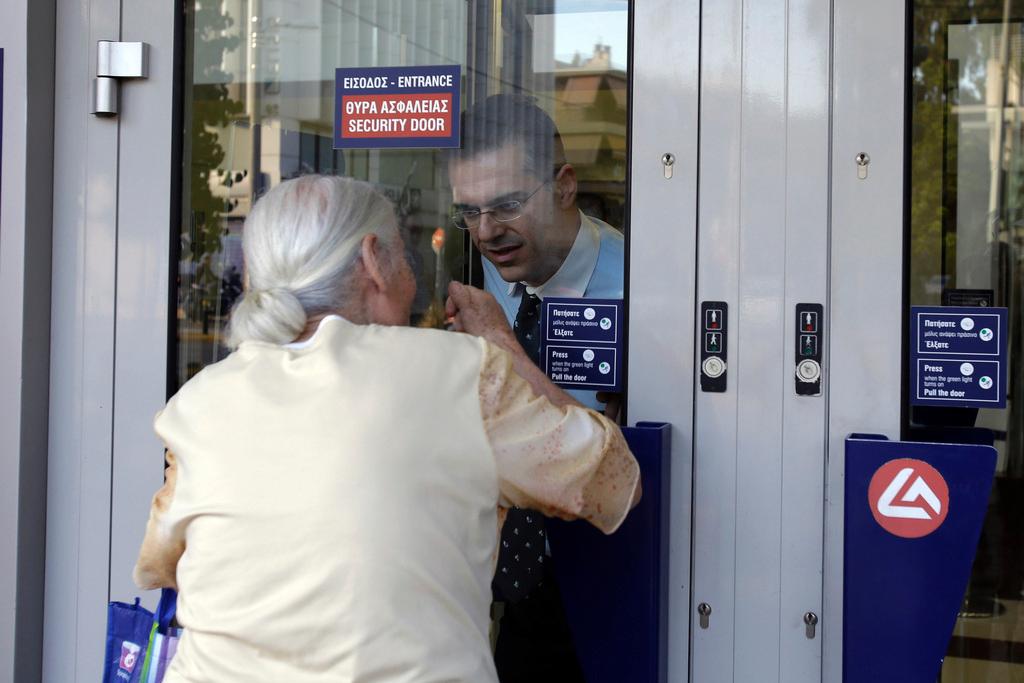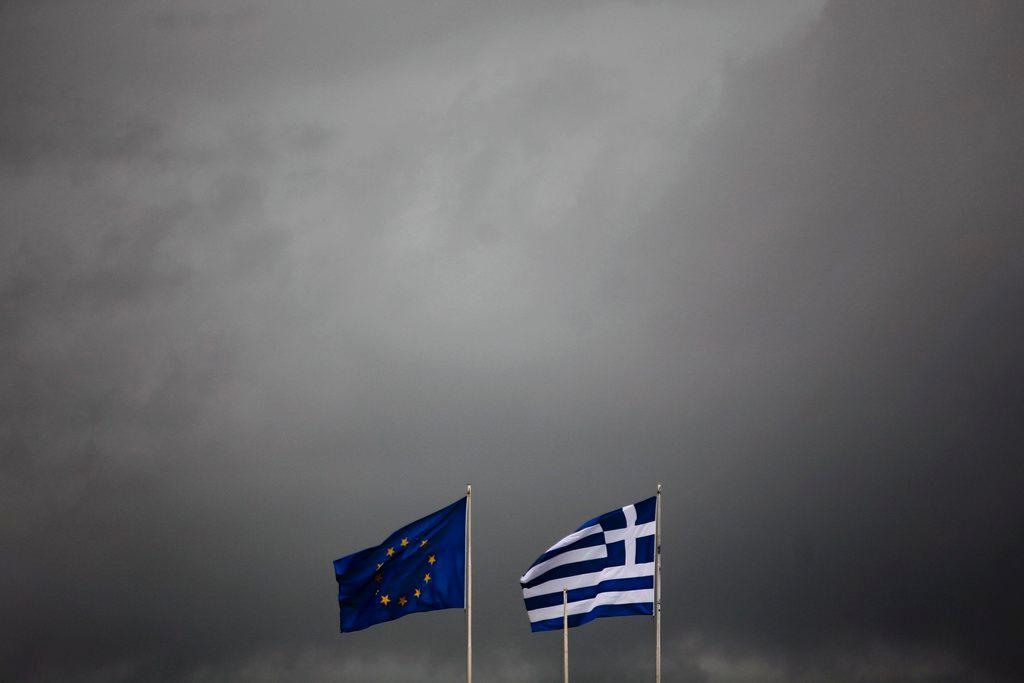Press predict Greek euro exit after referendum

Swiss and global media believe that Greece has shuffled a step closer towards exiting the eurozone following Sunday’s referendum rejection of Brussels-imposed austerity measures and the shock resignation on Monday of Greek Finance Minister Yanis Varoufakis.
“Greeks follow the government into chaos” screamed an editorial in the Tages-Anzeiger newspaper. “Playing poker with the highest stakes” said Blick, whilst Le Temps interpreted Greece’s referendum result as “The No that shakes Europe”.
On Sunday, just over 60% of Greek voters followed their government’s advice to reject a list of savings measures that included pension cuts. The following day Varoufakis handed in his notice, saying that European Union finance ministers did not want him at the negotiating table anymore.
“The result is a setback for Merkel,” said the German newspaper Bild, referring to German Chancellor Angela Merkel’s insistence that her country would not foot any more of the bill for keeping the Greek economy afloat.
“Now she [Merkel] will really have to stay hard,” the newspaper said. “Europe’s rules and fair solidarity must be defended against leftist gamblers in Athens.”
Last week Greece defaulted on a €1.5 billion (CHF1.6 billion) repayment instalment to the International Monetary Fund (IMF). Observers believe it unlikely that the European Central Bank (ECB) will step up emergency loans to keep Greek banks and the economy afloat in the short run.
An editorial in Switzerland’s Neue Zürcher Zeitung newspaper said that Greek voters “seem to believe that their arguably poor economic situation and high unemployment are not to be blamed on their own policy failure, but on the stubborn beliefs in Brussels and Berlin”.
“A Greek exit from the Monetary Union cannot be enforced, but is a logical conclusion of the No vote,” the paper said.

More
Private banking, Greek-style
Some sympathy
However, not all newspaper headlines condemned Greece for its decision. “This is a Yes vote for [Greek Prime Minister] Alexis Tsipras. But it is not a No to Europe,” wrote Olivier Bot in the Tribune de Genève. “The economy doesn’t decide everything in our lives: that’s the message sent by an atypical government in Europe.”
“And it’s that which most worries the Eurocrats. If other people started voting like the Greeks, what would happen? That’s an uncertainty that the markets hate.”
Writing a guest column for the Financial Times newspaper, Nick Malkoutzis, an economics writer for the Macropolis website, voiced sympathy for Greeks who voted No to further economic reforms in their country.
“I know people who voted No on Sunday. Some bought into the idealistic dreams of national sovereignty; others were furious with the way their country has been treated by its lenders,” he wrote. “But those I feel for most are the friends and relatives who voted for a possible euro exit because they felt exhausted and abandoned by their own leaders, as well as European decision makers.”
Tim Stanley in the British Telegraph newspaper also called for understanding rather than criticism.
“I hope the victory of the No vote in Sunday’s referendum means that this time they’ll bring a little compassion to the EU. It sorely needs it.”
What’s in store?
“Europe must decide whether to make an example of Greece”, said the New York Times newspaper as it considered the possible reactions from the EU, the IMF, ECB and Berlin. They will have to decide between sending out the wrong message to other potential flouters of EU fiscal rules and seeing Greece potentially slide closer to Russia if it exits the euro, the editorial said.
The media is also painfully aware that Sunday’s referendum in Greece provides more questions than answers to the future role of Greece within Europe.
“Yes, Athens is burning, and the paradoxical spectacle of the European tourists – happy to be there regardless of their nationality, in this welcoming country, at its ancient sites, under the sun and on the beaches – should not let us forget what is at stake,” warned Le Temps.
The Swiss newspaper said the referendum had sparked a political, social and financial fire.
“And finally, it is a communal fire, because when extortion replaces confidence, when there are lies, and when there are broken promises to keep, the worst can never be ruled out.”

In compliance with the JTI standards
More: SWI swissinfo.ch certified by the Journalism Trust Initiative






You can find an overview of ongoing debates with our journalists here. Please join us!
If you want to start a conversation about a topic raised in this article or want to report factual errors, email us at english@swissinfo.ch.